Building and promulgating the Juvenile Justice Law is an objective and inevitable need to institutionalize documents, resolutions and regulations of the Party and State on juveniles; building a complete juvenile justice system in terms of both content and procedures; and at the same time, gradually perfecting the legal system in accordance with international commitments of which Vietnam is a member.
 |
| General Secretary Nguyen Phu Trong with students of Canh Thuy commune, Yen Dung district, Bac Giang province |
During his lifetime, President Ho Chi Minh paid special attention to the healthy and comprehensive development of children. He once said: "Children are like buds on a branch", they are the young shoots, the future owners of the country. That spirit has been expressed in the Constitutions of Vietnam since 1946, 1960 and further emphasized in the Constitutions of 1980, 1992 and 2013. In recent years, in many important resolutions and documents of the Party and State (1), children are identified as priority for care, education and protection. In particular, Directive No. 28-CT/TW, dated December 25, 2023, of the Politburo , "On strengthening the care, education and protection of children to meet the requirements of developing a prosperous and happy country" has proposed the solution of "developing a child-friendly and child-protecting judicial system".
• THE NECESSITY OF DEVELOPING AND PROMULGATION OF THE LAW ON JUVENILE JUSTICE
The 2013 Constitution affirms: “Children are protected, cared for andeducated by the State, family and society; they are allowed to participate in children's issues”. In the judicial field, the care and protection of children have been institutionalized in many regulations in codes, laws and sub-law documents (2). These documents have shaped basic criminal policies towards leniency and a number of specific procedural and measures applied to minors in supervision, education, execution of sentences, reintegration into the community... A number of institutions to protect minors in judicial activities, especially the establishment of family and juvenile courts, have also been effective. However, the current legal system also reveals a number of limitations and inadequacies, specifically:
Firstly, the punishment system is not suitable for the age, characteristics and nature of the criminal behavior of minors; some punishments do not differentiate between minors and adults (3); the maximum prison sentence applied to minors is still too strict; the conditions for minors to be released from prison early are still strict (4);...
Second, monitoring and educational measures have been prescribed, but are hardly applied, lack feasibility and have many shortcomings; diversion measures are few and formal, lacking rehabilitation mechanisms for minors;...
Third, some criminal proceedings are not really friendly and suitable for the psychology, cognitive ability and development of minors; many regulations do not ensure the best interests of minors; there is a lack of institutions to protect minors as victims and witnesses;...
Fourth, a national coordination mechanism has not been established to effectively resolve juvenile justice issues; the position, role, and responsibilities of social workers in juvenile justice activities have not been defined.
 |
| Police officers and soldiers propagate the law to ethnic minorities _Photo: Document |
Fifth, regulations on execution of sentences and community reintegration for minors are still limited, inappropriate, and not very effective.
Sixth, some provisions of the United Nations Convention on the Rights of the Child have not been internalized, such as the right to free legal aid for people from 16 to under 18 years old, specialized agencies and organizations dedicated to children (only partially established in courts - family and juvenile courts).
Seventh, Vietnamese law on juvenile justice is regulated in many laws; some regulations do not clearly differentiate between adults and juveniles.
The practice of resolving criminal cases involving minors shows that: The settlement procedures are still cumbersome; the settlement time is still long; the viewpoint of handling juvenile offenders is still heavily focused on deterrence and applying punishment without determining that punishment should only be used as a last resort; there is no focus on creating opportunities for juvenile offenders to correct and improve their behavior; inter-sectoral coordination is sometimes and in some places still lacking in synchronization and effectiveness; investment resources for the care and protection of juveniles in litigation activities have not met the needs;... These limitations are one of the reasons leading to the fact that the rate of juvenile offenders and recidivists is still high and tends to increase.
We all understand that minors are people who have not fully developed physically, emotionally, and cognitively; lack social and legal knowledge; act emotionally and impulsively; have difficulty controlling their emotions; and have limited ability to prevent and avoid risks and dangerous behaviors. This is a vulnerable group in society and needs special protection and care, especially in criminal justice activities. Therefore, criminal justice policies for minors need to have a specialized approach, appropriate to their age and cognitive abilities, and aim at the main goal of educating, reforming, and helping minors to correct their mistakes, improve their awareness and behavior, and become good citizens for society.
In addition, Vietnam is the first country in Asia and the second in the world to ratify the United Nations Convention on the Rights of the Child (UNCRC) and many international documents on human rights in general and children's rights in particular, all of which recommend promoting the development and improvement of laws on juvenile justice. In particular, in 2022, the United Nations Committee on the Rights of the Child recommended that Vietnam "develop and adopt a comprehensive law on child justice, providing a legal framework for the child justice system". However, Vietnam still does not have a separate, comprehensive law on juvenile justice.
Therefore, it is necessary to develop and promulgate the Juvenile Justice Law in order to: 1- Institutionalize the Party's viewpoints and guidelines, the State's policies and laws; internalize international commitments; perfect judicial laws that are strict enough, but also ensure humanity for juvenile offenders; 2- Strengthen education, support and help juvenile offenders to correct their mistakes and improve their behavior by applying diversion measures, minimizing the application of punitive and detention measures, but still ensuring community safety and social order; 3- Develop friendly, age-appropriate, psychological and best-interested litigation processes and procedures for juveniles; 4- Ensure the basic rights of juveniles in diversion, investigation, prosecution, trial, execution of judgments and community reintegration; 5- Attract and mobilize human resources with expertise in social work; enhance the responsibility of families, relevant agencies and organizations to support, supervise and educate minors; 6- Establish detention facilities suitable for the purpose of rehabilitation, education and development of minors; 7- Increase opportunities for community reintegration; build effective, professional, simple and suitable supervision, education and rehabilitation mechanisms for minors.
 |
| Member of the Politburo, Secretary of the Party Central Committee, Chief Justice of the Supreme People's Court Nguyen Hoa Binh presented the report on the draft Law on Juvenile Justice at the 7th Session of the 15th National Assembly. |
• BASIC CONTENTS THAT NEED TO BE CONCERNING IN BUILDING A JUVENILE JUSTICE LAW
First, limit the scope of adjustment.
The law needs to limit its scope of regulation, focusing on regulations on handling and redirecting juvenile offenders; penalties and specialized criminal policies; friendly procedural procedures; execution of judgments and community reintegration; tasks, powers and responsibilities of agencies, organizations and individuals in juvenile justice activities.
The above limitation of the scope of the Law aims to specify the provisions of the Constitution on children and minors; institutionalize Directive No. 28-CT/TW of the Politburo. This is also consistent with the legislative orientation of the National Assembly on law-making stated by the National Assembly in Resolution No. 89/2023/QH15, dated June 2, 2023, on the "Law and Ordinance Making Program in 2024, adjusting the Law and Ordinance Making Program in 2023"; and ensures the formation of a specialized and comprehensive law for minors, including specific criminal policies, friendly procedural procedures, age-appropriate conditions for execution of sentences, protection of basic rights of children, protection of minors and facilitation of community reintegration for minors. This is also consistent with international standards and common experience of many countries that have enacted Juvenile Justice Laws.
Second, prescribe humane, progressive and specific principles to protect minors in criminal justice.
The development of the contents of the Juvenile Justice Law must ensure the following principles: ensuring the best interests of juveniles; ensuring friendly procedural procedures; equal treatment; the right to full and timely information; ensuring the presence of a representative; prompt and timely resolution; prioritizing the application of diversion measures; specialized handling; ensuring personal confidentiality; the right to defense, the right to legal aid, and interpretation; minimizing the application of preventive measures and coercive measures; specialization in juvenile justice activities; ensuring and respecting the right to participate and express opinions; ensuring the validity of decisions on applying diversion measures; ensuring the implementation of educational measures at reformatory schools and appropriate execution of prison sentences; supporting reintegration into the community.
Third, develop a system of alternative treatment to replace punishment applied to juvenile offenders.
The application of punishment to minors has not really brought about the expected results; therefore, it is necessary to strongly reform this institution in the following direction:
Supplement and amend many new and appropriate diversionary measures for minors, such as reprimand; apology to the victim; compensation for damages; participation in study and vocational training programs; participation in psychological treatment and counseling; performing community service work; banning contact; limiting living and traveling hours; banning going to a certain location; education at the commune, ward, or town level; house arrest; education at a reformatory school.
Currently, the expansion of cases where minors are subject to diversion measures has been stipulated in Clause 2, Article 91 of the Penal Code (5). It is necessary to strictly regulate the conditions for applying diversion measures to ensure social order and safety for the community.
The application of diversion measures must be flexible and appropriate to each subject. When considering application, it must be based on the nature and level of danger of the crime; the ability to educate and rehabilitate the minor and the safety of the victim and the community. The choice of which diversion measure to apply to a minor must be appropriate to the circumstances, age, and psychological characteristics of the minor. A minor who commits a crime may be subject to one or more diversion measures; but no diversion measure shall be applied if at the time of consideration the offender is 18 years of age.
The diversion treatment regime should encourage minors to comply well in order to terminate the diversion treatment before the deadline. For those who are currently serving diversion treatment and have made much progress, the diversion treatment can be terminated before the deadline to encourage them to actively cultivate and train themselves and improve the effectiveness of the diversion treatment.
It is necessary to innovate the procedures for handling diversion in a timely and effective manner. It is necessary to stipulate that the investigation agency, the prosecutor's office, and the court all have the authority to consider and apply diversion measures; in particular, educational measures at reform schools must be decided by the court because they are related to human rights and the restriction of freedom of minors. In particular, it is necessary to stipulate two different procedures for handling diversion, including: 1- Procedures for considering and deciding to apply diversion measures outside the community; 2- Procedures for considering and deciding to apply educational diversion measures at reform schools.
To ensure strictness and improve the effectiveness of educating minors, it is necessary to stipulate sanctions for cases of violation of obligations when implementing diversion measures, such as: 1- Extending the application period of diversion measures if the minor violates the obligations once; 2- Changing the strict diversion measure to an educational measure at a reformatory school if the minor violates the obligations twice or more; 3- Suspending the implementation of diversion measures and activating the criminal liability handling process according to the order and procedures of the Criminal Procedure Code if the minor commits a new crime.
Fourth, build a more friendly procedural system in a direction more suitable for minors.
Procedural procedures must ensure specificity and suitability for minors from the stages of prosecution, investigation, indictment to trial, specifically:
It is necessary to prescribe two separate procedural rules for minors, including: One, procedural rules for minors accused of crimes; two, procedural rules for minors who are victims or witnesses.
Innovate the regulations on preventive and coercive measures against minors accused of crimes, in which preventive measures include: Detention in emergency cases; arrest in case of flagrante delicto, wanted, temporary detention; temporary detention; temporary detention; electronic monitoring; home monitoring. Coercive measures include: Escort, escort; property seizure; account freezing. It is necessary to narrow down the cases of minors subject to temporary detention(6), accordingly, minors are only subject to temporary detention in cases of real necessity and when other monitoring measures are ineffective.
Ensure the right of minors to have prompt and timely access to their legal rights and interests protectors and legal assistants. Lawyers and legal assistants of accused minors are allowed to participate in the proceedings from the time of verifying the report and denunciation of the crime. In cases of arrest and detention of minors, they are allowed to participate from the time of arrest and detention of the minor. Minutes of taking statements and interrogating juvenile suspects are only considered evidence when there is the participation of lawyers and legal assistants.
Supplementing regulations on friendly proceedings during the stages of indictment, investigation and prosecution. The indictment, investigation and prosecution of accused minors must be carried out in a friendly environment, ensuring the safety of their lives, health, personal privacy, honor and dignity. For criminal cases where the offenders are adults and minors, the investigation agency must separate them into two cases to handle the case involving minors separately. The time limit for investigation, prosecution and trial of minors must be shorter than that of normal criminal cases. The taking of statements, body searches, confrontations, identification and voice recognition of minors must be friendly, appropriate to their psychology and age, and must involve the participation of legal representatives. Information related to the criminal acts of minors must be kept confidential and not made public. Investigators, prosecutors, judges, and social workers enforcing the Juvenile Justice Law must have experience, training, and necessary understanding of psychology and educational science for juveniles to ensure professionalism.
Continue to improve regulations on friendly trial procedures, in which criminal trials involving minors are conducted by specialized judges and family and juvenile courts in friendly courtrooms. During trials, handcuffs or other means of coercion are not used on minors and social workers are allowed to present social investigation reports on minors. Interrogation and debate must be conducted in accordance with the age and cognitive ability of minors. Judges wear administrative uniforms and must conduct the trial according to the concentration level of minors. Trials can be held in private, but when the verdict is announced publicly, only the decision is announced.
It is necessary to prescribe friendly procedural rules for minors who are victims and witnesses; limit contact between victims and witnesses and defendants; limit summoning victims and witnesses to court and not apply escort measures; physical examination and photography of injuries of victims must ensure privacy, respect minors and be performed by doctors of the same gender; receive free legal aid; receive support in compensation and costs for examination and treatment according to the provisions of law.
Fifth, reform the punishment regime for minors.
The system of penalties for juvenile offenders prescribed in the current Penal Code is appropriate, including warnings, fines, non-custodial reform and fixed-term imprisonment. However, it is necessary to supplement regulations on the application of warning penalties to juveniles when they commit less serious or serious crimes due to negligence and with mitigating circumstances, but not to the extent of exemption from punishment. Expand the cases where juveniles sentenced to imprisonment are given suspended sentences. In the case of juveniles from 14 to under 16 years old, if they have private property, they can also be subject to a fine, and the fine amount shall not exceed one-third of the fine amount prescribed by law.
Regarding fixed-term imprisonment, it is necessary to regulate in the direction of reducing the level of imprisonment for minors, to promote the humanity of the law, but still ensure the strictness of criminal policy for minors who violate the law. It is necessary to study and reduce the highest level of punishment for minors. In cases where minors commit crimes against life, health and drugs, such as murder, rape, rape of people under 16 years old, rape of people from 13 to under 16 years old, illegal production of drugs, the level of punishment is appropriate according to the provisions of current law.
Sixth, on the execution of prison sentences and reintegration into the community.
It is necessary to supplement regulations on the execution of prison sentences and community reintegration in the following direction:
Juveniles are detained in separate detention camps to have the best educational and rehabilitation environment; juveniles are not detained together with adults. Juvenile detention camps are invested in educational, medical, sports, cultural equipment... to ensure the basic rights of juveniles, suitable to the psychology, age, and development of juveniles, especially ensuring the maximum right to education of juveniles. This also helps avoid scattered investment, local surpluses and shortages, and inefficiencies when investing in separate detention areas for juveniles in all detention camps nationwide, while the number of juveniles serving sentences in detention camps is not large (7), with different educational levels and criminal characteristics, making the education and training of juveniles difficult to implement and not meeting their specific requirements.
The detention regime for minors must be compatible with the specific characteristics of the subjects detained. Prison officers must be qualified, trained, knowledgeable about the psychology of minors or have participated in cases related to minors. During detention, minors must be guaranteed the right to full education; in cases where direct teaching and learning cannot be arranged, they must coordinate with the school nearest to the detention facility to organize online classes.
Opportunities and support for juveniles to reintegrate into the community should be expanded, such as expanding the scope of early release from prison; allowing for conditional early release from prison for juveniles at any time of the year instead of periodically considering them in batches for adults. The time limit for expungement of criminal records for juveniles should be shortened by half compared to the current provisions of the Penal Code.
The issuance of vocational training and cultural graduation certificates also needs to be reformed in the direction of assigning vocational training institutions to issue certificates to minors after completing education and training programs to avoid stigmatization and discrimination against them when reintegrating into the community, making it difficult for them to continue studying or applying for jobs. At the same time, it is necessary to stipulate that businesses, organizations and individuals are not allowed to discriminate or discriminate when recruiting and using employees who are minors aged 15 years or older because they have previously been subjected to educational measures at reform schools or served prison sentences.
It is necessary to add more measures to support community reintegration not only in reform schools and prisons before release, but also to regulate support for minors after release to create conditions for studying, learning a trade, and supporting employment for minors when qualified; eliminating prejudice and discrimination.
Seventh, ensure the rights and obligations of minors.
It is necessary to clearly define the rights and obligations of accused minors, such as the right to have a legal representative throughout the proceedings; to be defended and provided with free legal aid; to receive support from medical, psychological, educational, and sociological experts when necessary;... Minors who are victims or witnesses have the right to receive support from medical, psychological, educational, and sociological experts when necessary; to be compensated for damages and supported according to the provisions of this Law and other relevant laws;... Persons who implement diversion measures have the rights, such as to study or learn a trade; to participate in local counseling and life skills development programs; to be granted a certificate of completion of diversion measures;...
Eighth, promote the responsibility of agencies, organizations and individuals in juvenile justice activities.
It is necessary to study the establishment of a National Council on Juvenile Justice and a standing body to assist the National Council on Juvenile Justice to perform the function of coordinating judicial activities and managing social work on juveniles. Enhance the role and tasks of social workers in juvenile justice activities because they are the ones who understand the psychology and age, the social circumstances of juveniles better than anyone else, and at the same time, they are the ones who support juveniles when implementing measures to redirect and reintegrate into the community. In addition, it is necessary to add tasks to the Child Protection Fund according to the provisions of the Law on Children in supporting juvenile justice activities.
(1) Directive No. 20-CT/TW, dated November 5, 2012, of the Politburo, "On strengthening the Party's leadership over the work of caring for, educating and protecting children in the new situation"; Documents of the 11th, 12th and 13th National Congresses of the Party... In particular, Resolution No. 27-NQ/TW, dated November 9, 2022, of the 6th Central Conference, Session XIII, "On continuing to build and perfect the socialist rule of law state of Vietnam in the new period" sets the goal: "A legal system that is democratic, fair, humane, complete, synchronous, unified, timely, feasible, public, transparent, stable, accessible, strictly and consistently implemented" and proposes the solution: "Strengthening the development of laws with specific content and direct effect".
(2) Penal Code; Criminal Procedure Code; Law on Enforcement of Criminal Judgments; Amnesty Law; Law on Temporary Detention and Imprisonment; Law on Legal Aid; Law on Children...
(3) Example: Warning penalty
(4) For example: Release from prison is not allowed for minors who commit crimes twice or more, if the crimes committed by the minors are less serious, serious or are insignificant accomplices.
(5) 1- Persons from 16 years old to under 18 years old who commit less serious crimes or serious crimes as prescribed by the Penal Code; 2- Persons from 14 years old to under 16 years old who commit very serious crimes as prescribed by the Penal Code; 3- Minors who are accomplices and have an insignificant role in the case
(6) Minors from 14 to under 16 years old shall not be detained in the following cases: 1- Preparing to commit a very serious crime; 2- Possibility of absconding or destroying evidence; 3- Having no clear place of residence or the defendant's background cannot be determined; 4- Showing signs of continuing to commit crimes; 5- Bribing, coercing, inciting others to make false statements, providing false documents; destroying, falsifying evidence, documents, objects of the case, dispersing assets related to the case; threatening, controlling, retaliating against witnesses, victims, people reporting crimes and relatives of these people.
Minors from 16 to under 18 years old shall not be detained in the following cases: 1- Preparing to commit a very serious crime; 2- Having no clear place of residence or the defendant's background cannot be determined; 3- Showing signs of continuing to commit crimes; 4- Bribing, coercing, inciting others to make false statements, providing false documents; threatening, controlling, or taking revenge on witnesses, victims, people reporting crimes, and relatives of such persons.
Minors from 16 to under 18 years of age who commit serious crimes unintentionally or less serious crimes for which the Penal Code prescribes a prison sentence of up to 2 years shall not be detained in case they continue to commit less serious or serious crimes.
(7) Average of about 110 children/sub-camp
Professor, Dr. NGUYEN HOA BINH - Member of the Politburo, Secretary of the Party Central Committee, Chief Justice of the Supreme People's Court
(According to tapchicongsan.org.vn)
Source


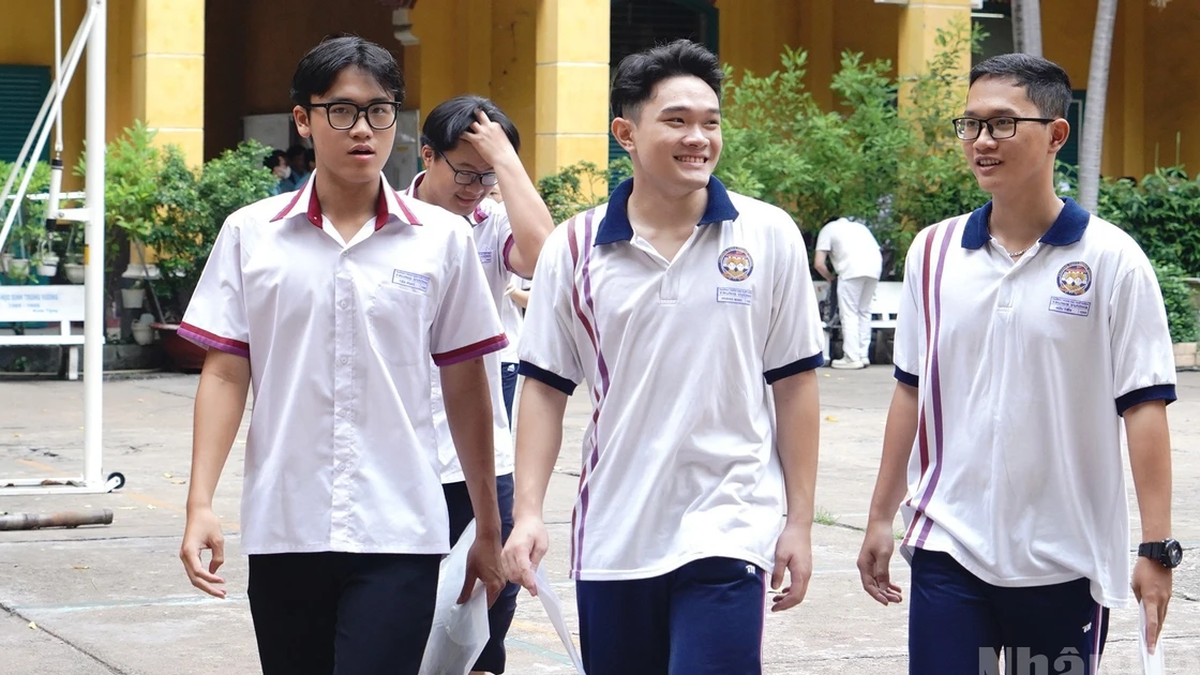
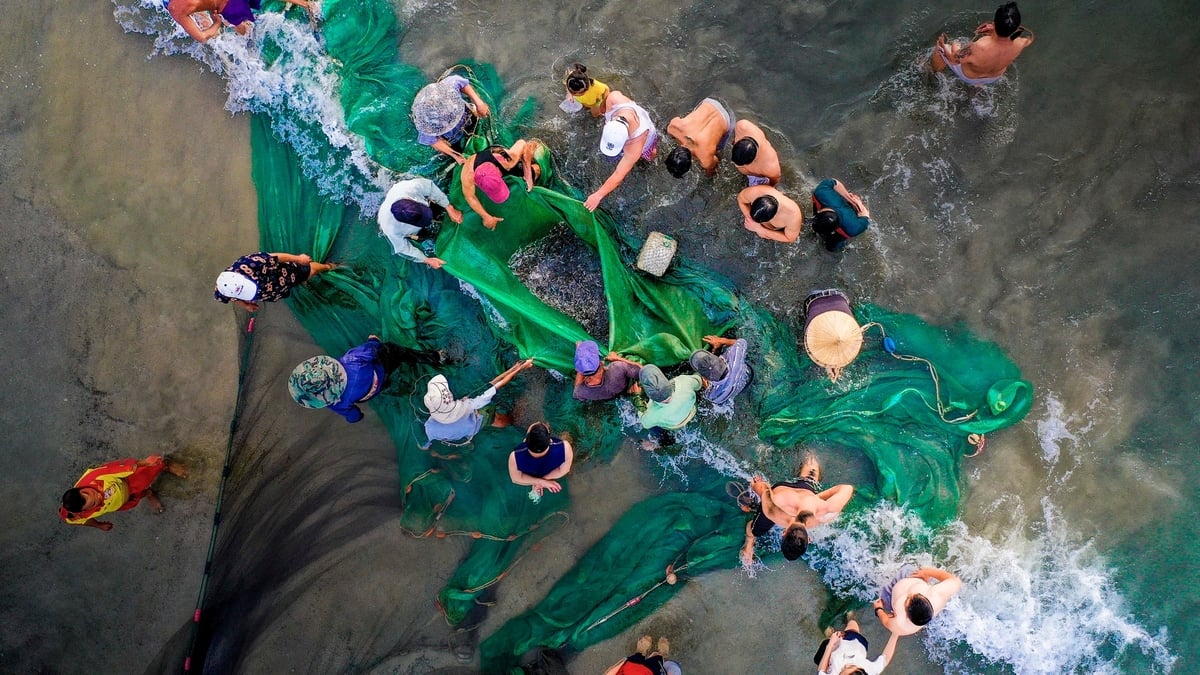
![[Photo] More than 124,000 candidates in Hanoi complete procedures for the 2025 High School Graduation Exam](https://vphoto.vietnam.vn/thumb/1200x675/vietnam/resource/IMAGE/2025/6/25/fa62985b10464d6a943b58699098ae3f)
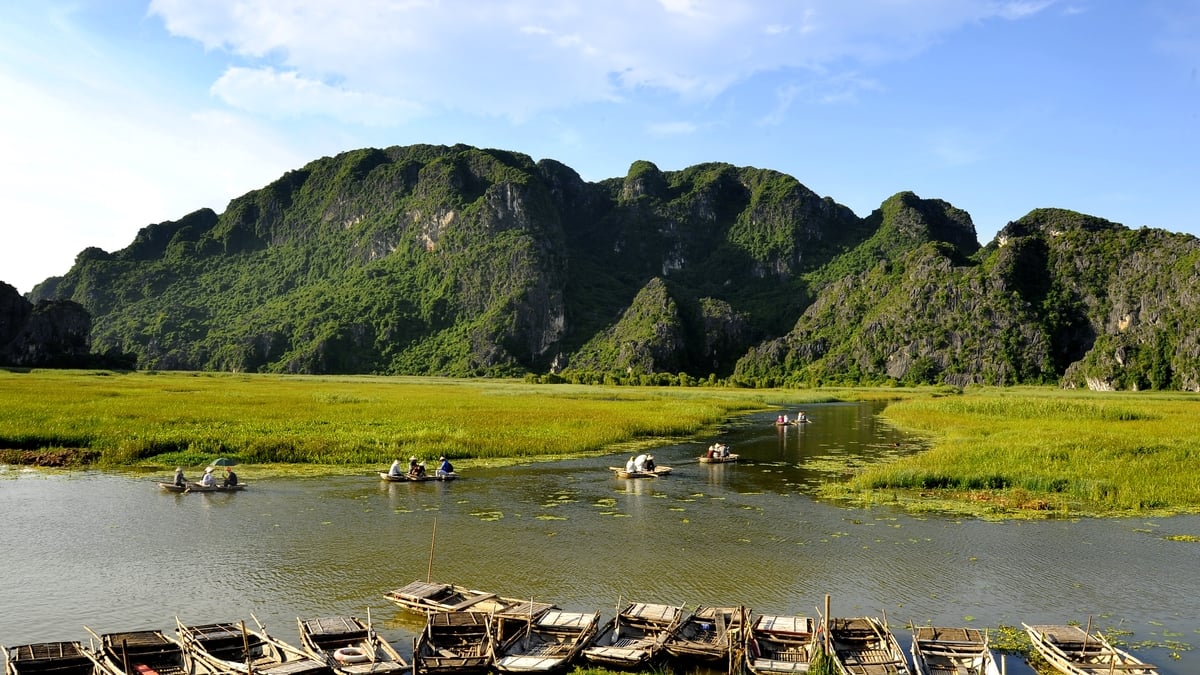
![[Photo] General Secretary To Lam works with the Standing Committee of Quang Binh and Quang Tri Provincial Party Committees](https://vphoto.vietnam.vn/thumb/1200x675/vietnam/resource/IMAGE/2025/6/25/6acdc70e139d44beaef4133fefbe2c7f)
![[Photo] First training session in preparation for the parade to celebrate the 80th anniversary of National Day, September 2nd](https://vphoto.vietnam.vn/thumb/1200x675/vietnam/resource/IMAGE/2025/6/25/ebf0364280904c019e24ade59fb08b18)




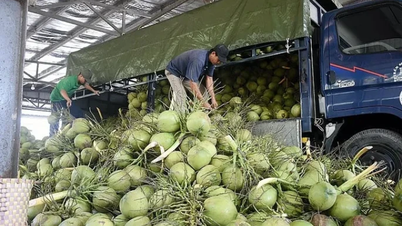

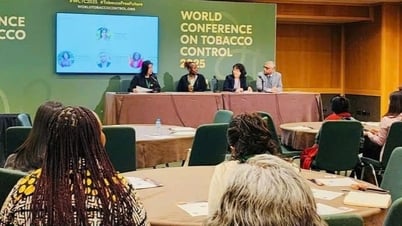

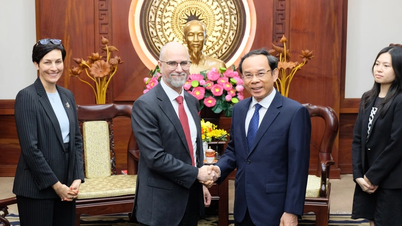





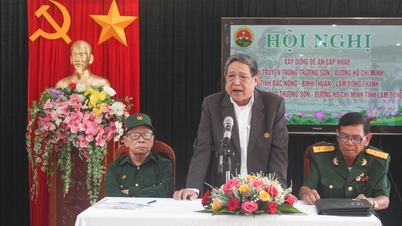


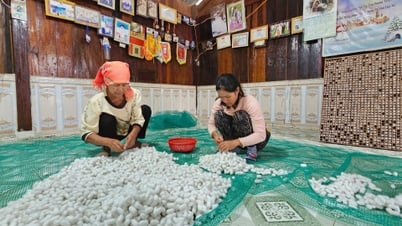





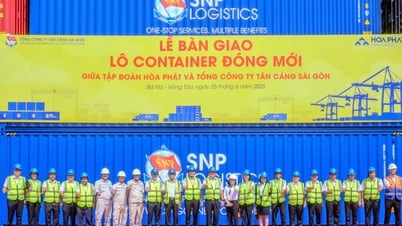
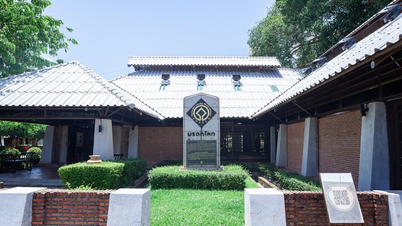
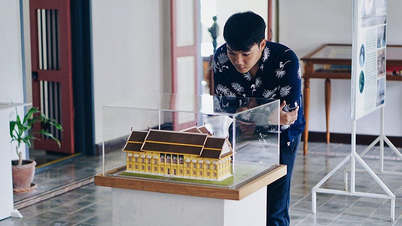


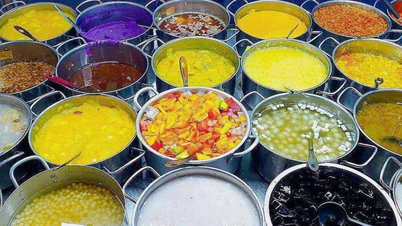


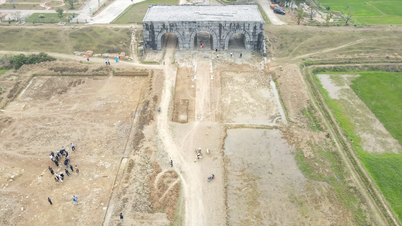



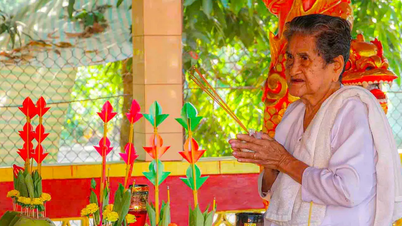

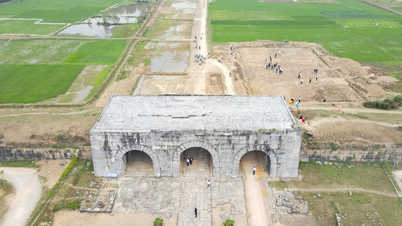


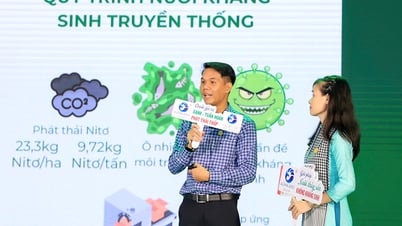


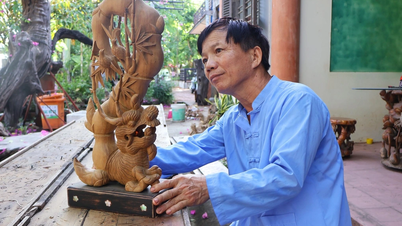

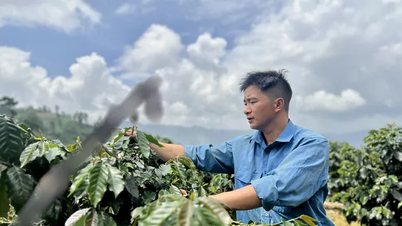






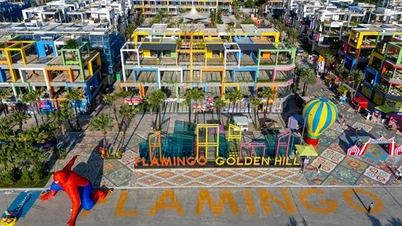




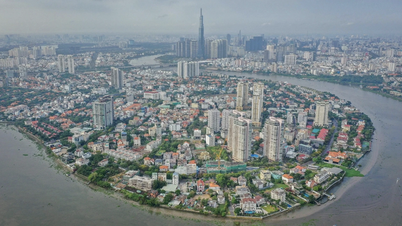






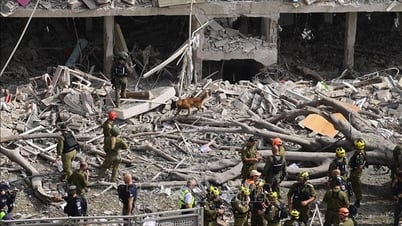



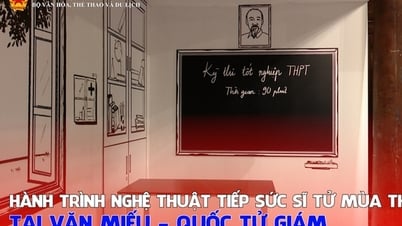


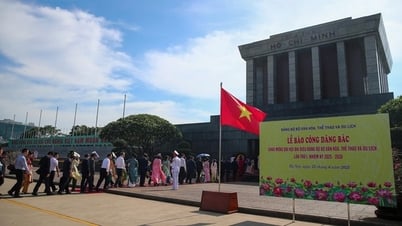
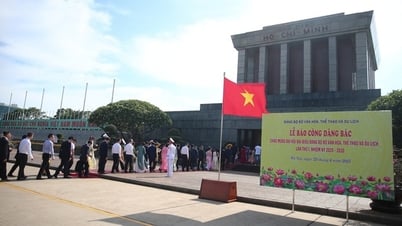
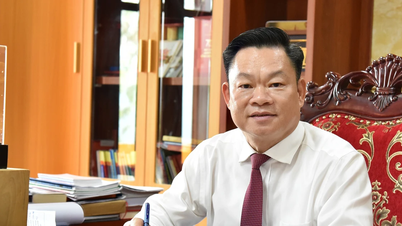



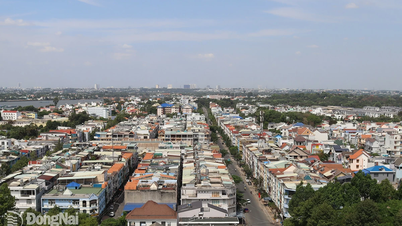

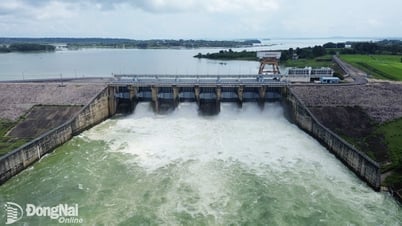

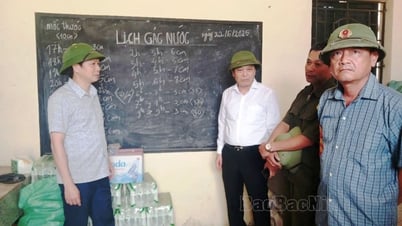















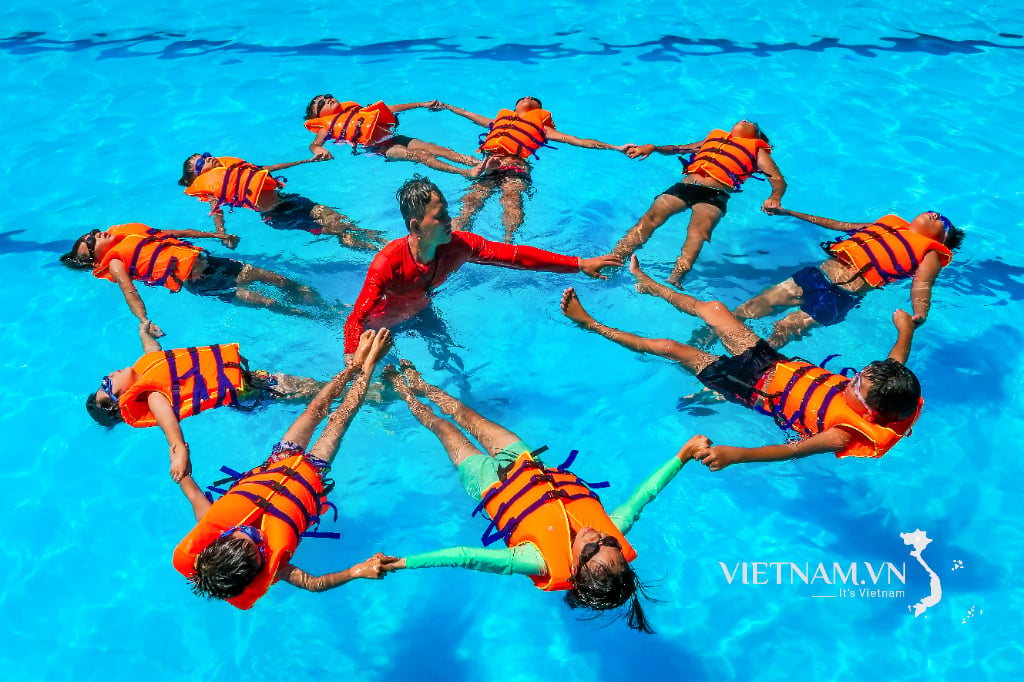
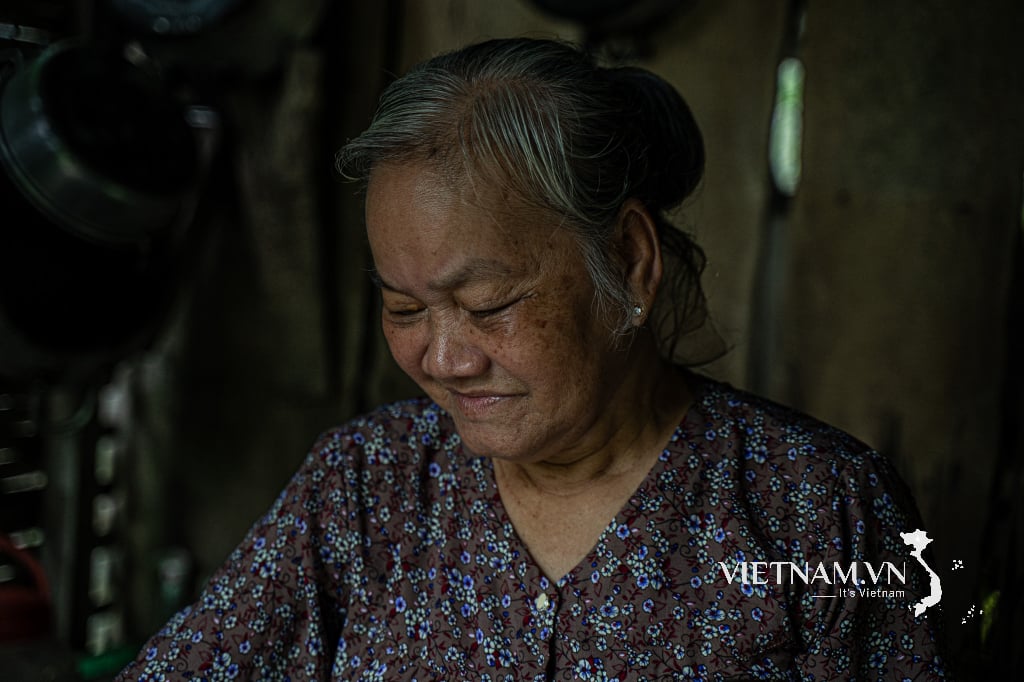
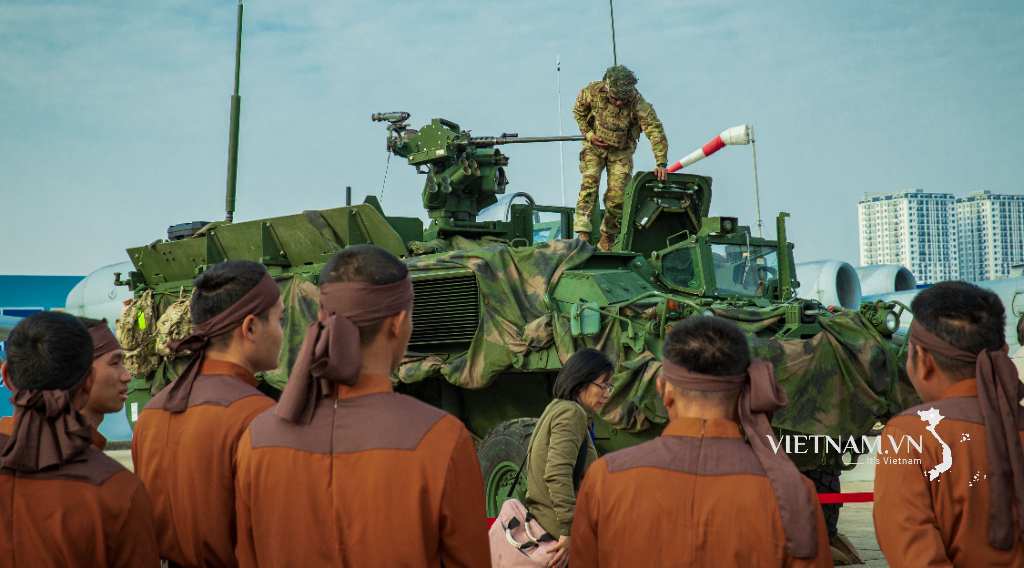
Comment (0)